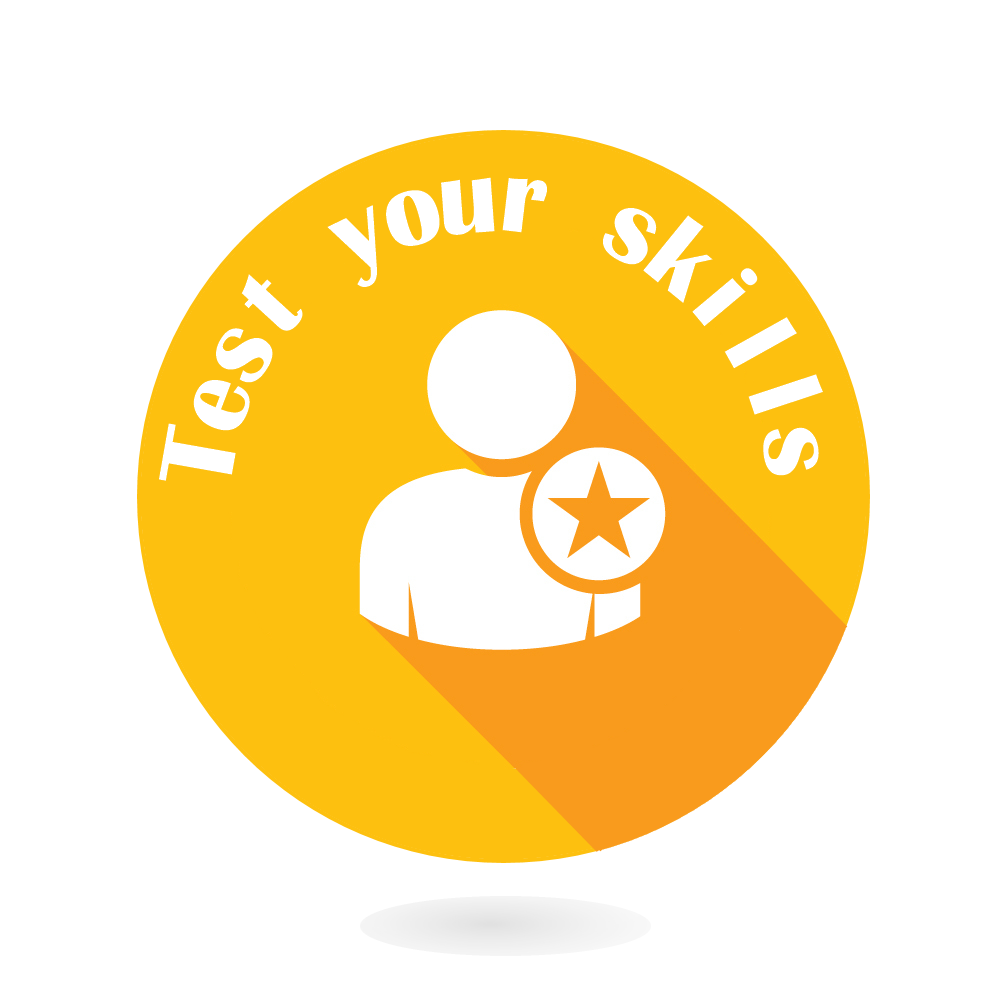SharePoint Server 2013 for Power Users
USP13P
4 days
Interested in a private company training? Request it here.
Overview of SharePoint 2013
This module provides an overview of SharePoint Server 2013, its key technologies, architecture and user experience. It will position SharePoint Server 2013 versus SharePoint Server 2016 and SharePoint Online and the available hybrid features.
Discovering SharePoint sites
SharePoint is a powerful site provisioning engine allowing you to create different sites for your projects, teams, meetings, products... In this module you will learn about site creation, the use of different site collections and the different site templates that are available.
- SharePoint Architecture
- Sites vs Site Collections
- SharePoint Team Site
- Discovering the Blog and Community Site Template
- Creating your own Site Templates
SharePoint Content Management
SharePoint offers rich content management features. Lists and Libraries are the core content management components allowing you to store data and documents. Furthermore, we look at metadata, views and content types.
- Basics of Apps, Lists and Libraries
- Discovering a Custom List, Document Library, Calendar and Task List
- Working with metadata and different column types
- Creating new views
- Creating new Content Types
- Content Type guidelines
SharePoint Store Apps
SharepPoint 2013 allows site owners to extend their sites using apps. You can browse your corporate catalog or visit the public store to find the functionality your looking for.
- Browsing the SharePoint App Store
- Installing and Working with SharePoint Apps
Changing, customizing and branding SharePoint Sites
The landing page will play an important role within your site. It's probably the most visited page and should show the right information. Equally important for your users is the navigation. Navigation should be simple and intuitive to use. It allows your user to navigate to different part of your or other sites.
- The SharePoint App Launcher and Ribbon
- SharePoint Wiki Pages
- Changing the content of SharePoint pages
- How to work with Web Parts?
- Different types of Navigation
- Navigation best practices
- Modifying Composed Looks
Document Management
Document Management is probably the most popular functionality of SharePoint. SharePoint Document Libraries allow you to easily manage versions, work together with your colleagues on the same document, assign metadata or work with different document templates.
- Keep track of different versions
- Configure check-out and Approval
- Grouping documents in Document Sets
- Receive email Alerts
- Co-Authoring on Office documents
- Recycle Bin
User Management & Permissions
SharePoint allows you to store your data in a secure and protected way. As site owner you can control access to the content stored within your site. You can invitate colleagues and decide if they get read access or more.
- SharePoint Permissions and Permission Levels
- Granting access at site and library level
- Working with users, domain groups and SharePoint groups
- Breaking permission inheritance
- Sharing your content with your colleagues
Synchronizing data between SharePoint and the Office clients
SharePoint provides a seamless integration with the Office clients Word, Excel, Outlook, Access... From simply opening and saving documents from Office to SharePoint to exporting and importing data with Excel and Access.
- Synchronizing calendars and contacts with Microsoft Outlook
- Exporting and importing SharePoint data to Microsoft Excel and Microsoft Access
Building and publishing forms with InfoPath
InfoPath combined with SharePoint InfoPath Forms Services gives you a powerful platform to deliver electronic forms. You will learn how to create powerful and interactive forms, how to integrate external data and how to apply validation. InfoPath Forms Services allows users to fill out the form directly in the browser.
- Creating form templates with InfoPath Designer
- Publishing InfoPath forms
- InfoPath Forms Services
- Working with the InfoPath web part
- Customizing list forms with InfoPath
Using and building custom workflows with SharePoint Designer 2013
SharePoint workflows allow you to implement and automate your business processes in SharePoint. You will look at the out-of-the-box approval workflows and by using SharePoint Designer 2013 and Visio you will learn how to create your own workflows.
- Using the out-of-the-box workflows
- Creating new workflows with SharePoint Designer 2013 and Visio
Enterprise Content Management
Enterprise Content Management helps you by giving you tools to organize and manage content throughout the content life cycle, from creation to archive.
It allows you to enforce different policies on your documents and to manage metadata and content types at enterprise level.
- Metadata at enterprise level with the Managed Metadata Service
- Terms and TermSets
- Publishing of Enterprise Content Types
- Moving Documents with Send To
- Classifying documents with the Content Organizer
- Record Management
- Policies: Auditing, Expiration, Data Loss Prevention and Document Deletion
SharePoint Search
SharePoint includes the ability to search for content inside SharePoint across multiple sites and site collections and outside SharePoint on file shares, websites, databases.... The SharePoint Search query syntax includes the ability to refine a search based on a number of configurable refiners to find the data you are looking for. Modern SharePoint environments will not only use search by using the Search Centers but will also incorporate Search to drive navigation and to aggregate content from different locations.
- Search query syntax
- Configuring the Search Engine
- Working with Result Sources
- Defining and using managed properties
- People Search
- Query Rules
- Search web parts
- Result Types
Web Content Management: Publishing Pages
SharePoint comes with a lot of features for building intranet and extranet portals. The Publishing pages allow you to create a consistent branding and page structure for your portals. Pages are based on Page Layouts in which branding and layout are predefined. Content authors can publish in a controlled way.
- Publishing Sites vs Team Sites
- Publishing of a Publishing Page
- Principals of Publishing Pages
- Using and creating Page Layouts
- Creating Page Layouts with the Design Manager
- Device Channels
Web Content Management: Cross Site Publishing
Cross Site Collection Publishing allows publishing sites to display content which is aggregated from different site collections or even external data sources. It can be used to automatically generate pages for exisiting content you have stored somewhere.
- Cross-site collection publishing
- Creating and connecting to Catalogs
- Managed and faceted navigation
- Content Search Web Part
- Category and Item Pages
- Search Engine Optimizations
Working with Business Connectivity Services
Working with BCS is all about connecting your SharePoint environment to an external line-of business system, web service or traditional databases. You will create an external content type with SharePoint Designer and learn about the different options to consume this data in SharePoint.
- Overview of the BCS architecture
- Creating External Content Types
- Connecting to databases and OData services
- Working with External Lists to support CRUD operations on your data in SharePoint
- Integrating external data in Outlook
SharePoint Social Features
The social features in SharePoint Server make it easy for users to find and connect with the people and content that matter to them and to share information and ideas. SharePoint newsfeeds will inform you what your colleagues are doing or what's happening with your content. Furthermore, you learn the benefits of OneDrive for Businness and how it allows you to get an offline copy of your documents.
- SharePoint Newsfeeds
- Managing your SharePoint User Profile
- Using OneDrive for Business
- Community Sites
SharePoint Server 2013 contains a rich set of features and functionalities allowing you to build a platform supporting your business needs. This course will teach you the out-of-the-box functionalities of the product. You will get hands-on experience with the SharePoint user interface and you will learn how to create, configure, secure and maintain SharePoint sites and build solutions incorporating InfoPath forms, SharePoint Search, the workflows engine... using the browser, the Office clients and SharePoint Designer 2013.
This course targets both IT professionals and business users interested in learning the ins and outs of the SharePoint 2013 functionalities. Participants will leave the training with the skillset necessary to become a SharePoint key user, content manager, site owner... No prior SharePoint knowledge is required.








